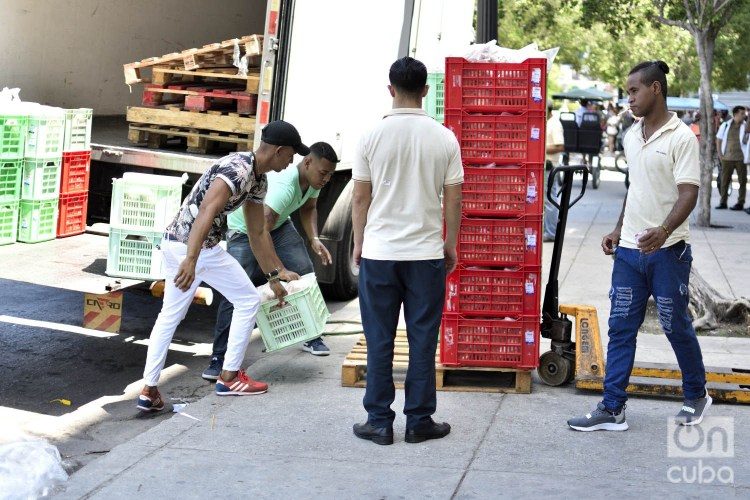The Cuban government will announce this Tuesday night a group of new economic measures, at a time when the island is going through an energy crisis caused by difficulties in the arrival of fuel.
The measures will be presented by Vice President Salvador Valdés Mesa and several ministers at the Mesa Redonda TV program, which will be broadcast at 7:00 pm Cuba time on the main channels and radio stations in the country.
The ministers who will be in this news program are Minister of Economy Alejandro Gil; of Finance and Prices Meisi Bolaños; of Domestic Trade Betsy Díaz; of Foreign Trade and Investment Rodrigo Malmierca; as well as the minister-president of the Central Bank of Cuba, Irma Margarita Martínez, and the first vice president of the state corporation CIMEX, Iset Maritza Velázquez.
The official press release does not provide advances on the nature of the measures, but the fact that the ministers of transportation and energy and mines will not be present suggests that they are not directly related to the fuel deficit in recent weeks.
Instead, taking into account the officials who will participate in the program, the announcements could be related to the sale and distribution of products, monetary availability and financial flow.
Cuba has been experiencing an energy crisis since last September which the government has described as “temporary,” and for which it blames the “intensification” of the U.S. embargo and the Trump administration’s measures to prevent the arrival of fuel to the Island.
Faced with this situation, which mainly affected transportation and industry due to lack of diesel, the authorities activated savings measures in the state sector that have kept the country afloat for almost a month and the population fearing a new “Special Period,” the severe crisis suffered by the island in the 1990s after the disappearance of the Soviet Union.
However, some days ago Cuban President Miguel Díaz-Canel considered that the most critical phase of the crisis has been overcome, without the need to paralyze the country or resort to power outages of previous crises.
The president revealed that at this moment the island can cover 62% of its energy needs and acknowledged that there will continue to be “tensions” in some sectors, for which he urged maintaining the savings measures and continuing to apply “experiences” from the Special Period.
Before this situation took place, the Cuban government had decreed a salary and pension increase for a large group of workers and retirees in the state sector, as part of a set of economic measures, which also included the limitation of prices for both state and private products and services and that generated fears about a possible inflation on the island.









